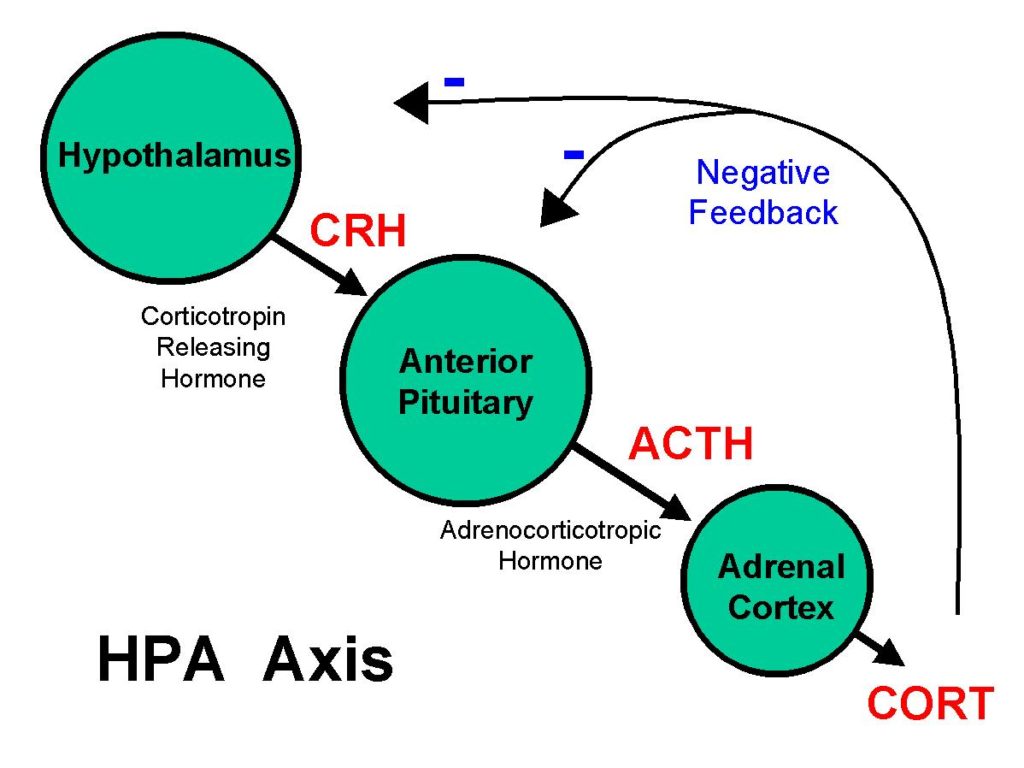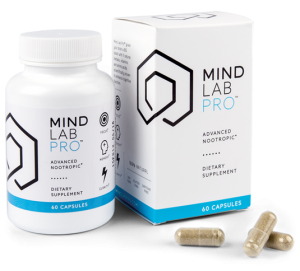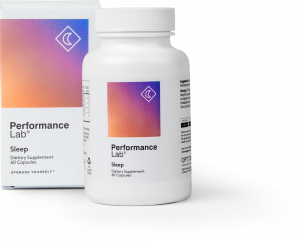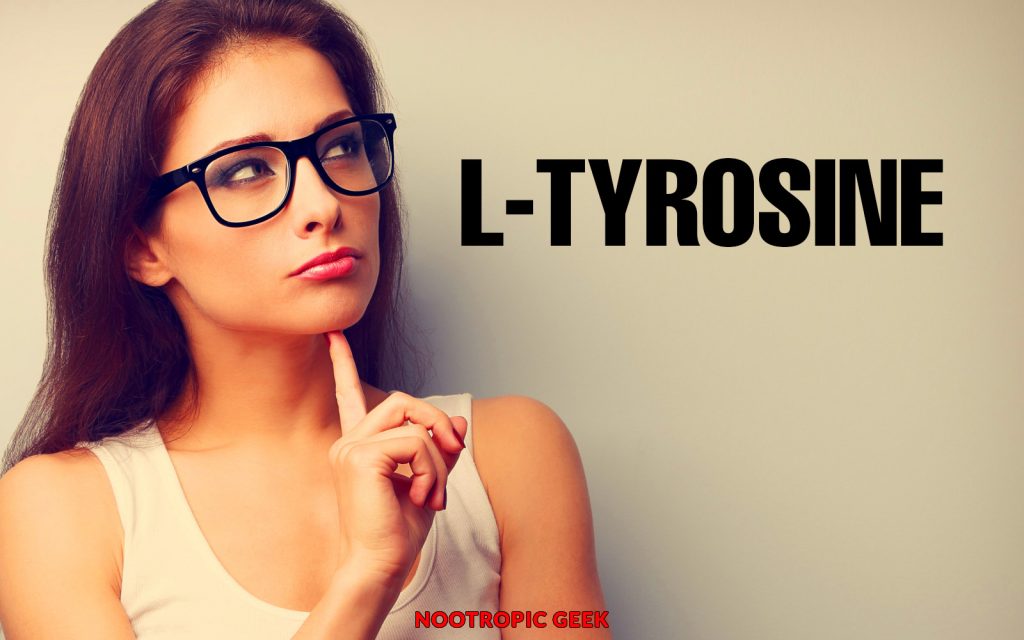Summary: Best Nootropics for Stress
A little stress is essential to keep our brains and bodies from going soft. Yet, too much stress threatens to derail our overall health and wellbeing. Nootropics for stress help by not eliminating stress altogether but keeping it at a healthy and safe level by replenishing key neurotransmitters, regulating the HPA axis (stress response system), and much more. Some of the best nootropic supplements for stress include L-tyrosine, Rhodiola rosea, Bacopa monnieri, L-theanine, ashwagandha, picamilon, magnesium, and kava kava.
Stress is normal and, in many ways, good for you.
However, chronic stress is not.
If you’re always stressed, you may find yourself in a vicious circle of bad habits (diet, sleep, physical activity, etc.) contributing to stress, which in turn contributes to further bad habits. Regardless of which comes first (the stress or the bad habits), an over-reactive stress response system can profoundly and negatively impact your health, including your cognitive wellbeing.
Given the complexity of the human brain and human psychology, chronic stress may occur due to any number of reasons. Fortunately, nootropics may help — namely nootropic adaptogens.
With that in mind, here’s my guide on how to take nootropics for stress, including a brief list of the best supplements you can take to combat stress and keep a cool head. Let’s get to it.
Page Contents
The Nootropic Guide to Stress
American philosopher William James said, “The greatest weapon against stress is our ability to choose one thought over another.” I like this quote, as it puts the power in your hands (or rather in your mind) to adjust your outlook and thereby improve your state of mind… However, I don’t think it’s all that useful or even true.
Rather, I think Kierkegaard has it right: it’s the ability to choose, or rather the abundance of choice, that contributes to a state of dread, anxiety — stress. After all, if you remove choice and present everyone with only one option at any given time, what is there to stress about? The decision has already been made for you.
Of course, stress is more complex than this — and it’s more immediate and potent a force than philosophy, I hate to say.
Biologically, stress is a hormonal pathway that provokes a series of fight-or-flight bio-activities, ideally under conditions that require fight or flight.
Any number of events — subjective and objective — may trigger a stress response.
Extremely cold temperatures trigger stress. Extremely hot temperatures trigger stress. Stress follows getting punched in the face. Stress precedes punching someone else in the face. Eating a rotten, bacteria-ridden sandwich increases bodily stress. Ongoing, loud noises incur stress. Not receiving enough sleep is stressful. Losing a job is stressful and, funny enough, winning the lottery can be stressful, too.
But which forms of stress are good stress vs. bad stress?
Good Stress vs. Bad Stress: What’s the Difference?
For the most part, the difference between “good” stress and “bad” stress is a matter of severity, duration, and frequency. Here’s a brief, crude breakdown of the distinction:
- Good Stress – temporarily and mildly engaging the stress response to heighten mental and physical productivity — i.e., the “stress” associated with exercising, learning something new, entering unfamiliar territory, etc.
- Bad Stress – chronic engagement of the stress response under inactive, unproductive conditions (e.g., worrying about bills while sitting), disrupting cognitive and physical performance over time, potentially leading to significant health problems.
Incidents of high, acute stress may also negatively impact mental performance for a short-term duration. (Assuming that the “high, acute stress” isn’t linked to any traumatic event.) But generally speaking, short-term, moderate engagements of the stress response assist with mental and physical growth and development, whereas chronic stress engagement accomplishes the opposite.
To get a better sense of how this all works, let’s take a closer look at the primary hormonal pathway of the stress response: the HPA axis.
Related: Best Nootropics for Memory
The Problem: Stress Hormone Cortisol and the HPA Axis
Here’s how stress works in biochemical terms: the mind perceives a stressor (any stress-causing thing, event, idea, etc.) and triggers a stress response by the release of corticotropin releasing hormone (CRH) from the hypothalamus. The anterior pituitary gland receives CRH and, as a response, releases adrenocorticotropic hormone (ACTH) into the bloodstream, sending a signal to the adrenal glands on the kidneys. The adrenals release stress hormone cortisol, which travels across the body to raise the “fight or flight” alarms.
Altogether, the Hypothalamus, Pituitary, and Adrenals make up the HPA axis:

The hippocampus (the brain’s memory storage unit) may shrink due to excess cortisol levels, leading to poor memory and learning skills. Cortisol, a catabolic agent, diminishes muscle-building potential, decreasing athletic performance. Sugar cravings ramp up, as well as the body’s proclivity to storing fat around the abdomen.
In short, everything sucks when stress turns chronic.
But at the same time, we still need healthy levels of stress to keep our HPA stress machine finely tuned and active enough to promote healthy, active behaviors and habits. Thus, to curtail chronic stress, what we don’t need are substances, such as intense “downer” pharmaceuticals, that completely obliterate the stress response.
What we need are nootropic adaptogens that simply help the brain and body adapt to stressors without over- or under-reacting.
Adapt and Conquer Stress with Adaptogens
With adaptogens, it’s all about balance — or homeostasis, a state of physiological equilibrium that applies to all bodily processes. Essentially, nootropic adaptogens help the brain and body adapt to internal and external stressors by maintaining mental and physical equilibrium in the face of stress.
In 1968 Soviet Russia, pharmacologists Dr. Brekham and Dardymov developed a criteria list for what qualifies as an “adaptogen” in a survey on medicinal plants. Those criteria are:
- An adaptogen should cause minimal harm to the body.
- The action of an adaptogen should be non-specific in its range of anti-stress benefits.
- An adaptogen normalizes bodily parameters against pathological conditions.
Similar to the original definition of nootropics, which requires that nootropics be side effect-free, adaptogens must also be safe in their “normalization” effects against stressors. Functionally, this means that nootropic adaptogens safely normalize bodily conditions under stress, preventing the stress response from overreacting to stressors and/or minimizing the harms caused by an overreactive stress response.
Benefits of Nootropics for Stress
Aside from the obvious benefit — healthier stress levels — the benefits of supplementing nootropics for stress include:
- Healthier energy levels
- Decreased brain fatigue and fog
- Enhanced cognitive clarity
- Better composure under stress
- Improved learning functions
- Better mood and motivation
And more. Of course, not all nootropics that help reduce stress are adaptogens per se — i.e., their primary function isn’t to “normalize” physiological pathways in the face of stress. Some anti-stress nootropics enhance cognition with or without stress. With that in mind, I’ve listed below some of the best nootropics for stress — adaptogenic or no.
Related: The Nootropic Guide to Intermittent Fasting
Best Nootropic Supplements for Stress
N-Acetyl L-Tyrosine
I’m always hesitant to include L-Tyrosine on these lists because I always include L-Tyrosine on these lists, and I’d hate to constantly repeat myself in these articles. Yet, the reason I’m likely to include tyrosine in any of these “Best Nootropics for [fill-in-the-blank]” articles is because it’s such a reliable brain booster in the face of overwhelming stress, fatigue, exertion, etc.
And it’s often the case that I’m stressed, fatigued, overactive, etc.
In addition to shooting excess levels of stress hormone cortisol throughout the body (via the HPA axis), high levels of stress also deplete the brain’s natural catecholamine neurotransmitters — e.g., dopamine, norepinephrine, and epinephrine. As a result, natural brain levels of L-tyrosine, a precursor compound to catecholamine brain chemicals, depletes, leading to brain burnout, poor mood and motivation. Following the Catecholamine Hypothesis, which posits that low catecholamine levels correlate with inattention and mood disorders, stress’ depletion of catecholamines may significantly and negatively impact cognitive performance, if left unattended for too long.
One way to attend to stress’ negative impact on catecholamine depletion: L-Tyrosine supplementation. By replenishing the brain’s catecholamine capacity, L-tyrosine supplements may help improve mood, motivation, and focus under conditions of high stress and activity. Research has found L-tyrosine supplementation to improve mental performance under the following “stressful” conditions:
- Sleep deprivation
- Combat simulation
- Low temperature exposure
- Loud noise exposure
- Low oxygen levels
I figured I’d start with this nootropic first, as L-tyrosine’s best used as a “clutch” cognitive enhancer. Frankly, it’s a great feel-good motivation booster even on days that are going well for you. Yet, when caca hits the fan, this is the anti-stress nootropic you’ll want to have in your corner. More on L-Tyrosine.
Rhodiola Rosea
For decades, the USSR hid this powerful adaptogen from the rest of the world, as they believed Rhodiola rosea to possess significant competitive advantages — in the Olympics, in space, and, well… in war. And if my personal experience with this herbal adaptogen is any indication, I think those damn Soviets were right:
Rhodiola rosea is an awesome physical and mental performance enhancer, particularly in the face of stress.
As an anti-stress herb, Rhodiola rosea practically sets the example of how an adaptogen works. It isn’t so much that Rhodiola is strictly anti-stress as much as this Siberian plant helps the body adapt to stress. This is important to note, as a complete neutralization of stress would render the body nearly inactive; sedative. But even so, Rhodiola’s adaptogenic benefits do see to work directly on the body’s primary stress pathway: the HPA axis.
Similar to L-tyrosine, Rhodiola rosea works quick, delivering fast-acting results on cognitive performance. Rhodiola accomplishes this by regulating stress hormone cortisol release, ensuring that cortisol levels stay within a normal, healthy range. Not so much cortisol control as to diminish the positive fight-or-flight effects of stress, but also not so little as to render Rhodiola useless.
One study found Rhodiola rosea to improve subjective measures of:
- Anxiety
- Stress
- Anger
- Confusion
- Depression
- Total Mood
— after only 14 days of supplementation. And this only encompasses the cognitive benefits of Rhodiola rosea, which has also made a splash on the bodybuilding scene for potential anabolic benefits (given that excess cortisol activity works against muscle building). More on Rhodiola Rosea.
Bacopa Monnieri
While I wouldn’t supplement Bacopa monnieri primarily for its anti-stress benefits (I view this herb more as a memory and learning booster than as a stress reducer), this herb does qualify as a legitimate adaptogen, as per the research and anecdotal reports.
On the memory and learning enhancement end, Bacopa works by enhancing the brain’s cholinergic pathways. One supposed model includes inhibiting acetylcholinesterase, the enzyme responsible for breaking down neurotransmitter acetylcholine. This, combined by Bacopa’s benefits again amyloid plaque build up, make this herb great for general cognition and longevity.
But on the stress reduction end, Bacopa seems to work by inhibiting excitatory brain chemicals released by a stress response. If Rhodiola rosea helps mitigate stress by regulating the stress hormone itself (cortisol), Bacopa monnieri works by mitigating the brain chemicals released as a result of cortisol release. Altogether, Bacopa’s brain bio-actions include a push-pull balance for better stress management:
- Push – Bacopa “pushes” against over-excited brain chemical pathways.
- Pull – Bacopa “pulls”, or promotes the release of, inhibitory “calming” neurotransmitters, such as serotonin and GABA.
What’s particularly cool about Bacopa monnieri’s cognitive enhancement design is how its effects amplify over time. Impatient nootropic users often toss this supplement by the wayside after only a few administrations, as it requires a few weeks of daily supplementation to reach peak effect. But once Bacopa monnieri’s brain benefits develop, Bacopa users may expect a generally calmer, more focused mindset that’s better equipped to deal with daily stressors and annoyances. More on Bacopa Monnieri.
L-Theanine

Unlike Bacopa monnieri, L-theanine does not require daily supplement for an extended period of time to reach peak effect …but that doesn’t stop me from taking this relaxing amino boi every single day, baby.
For nootropic newcomers, L-theanine may very well be the best starting point to jump into the world of brain biohacking, as it’s a familiar cognitive enhancer (sourced from green tea leaves) that goes great with another familiar cognitive enhancer: caffeine. In fact, I’m hesitant to even qualify caffeine as a genuine “nootropic” unless it’s coupled with L-theanine, which reduces the jittery side effects of stimulants.
And the bio-pathway L-theanine takes to reduce the “jitter” of stimulants relates to the anxiolytic amino’s stress reduction potential. Essentially, L-theanine seems to promote alpha brainwaves, a cognitive frequency associated with calm, creative thinking at no cost to energy and focus. That last part’s the real kicker:
L-theanine reduces anxiety and stress without also reducing mental performance.
Not too many anti-anxiety nootropics with such reliable stress relief work through non-sedative pathways, making L-theanine one of the more unique and necessary nootropics on the market. Whether related to L-theanine’s alpha brainwave boosts or not, the nootropic also seems to help settle over-excited neurochemical activity while enhancing relaxing neurotransmitters — similar to Bacopa monnieri. For the daily coffee drinker (which is practically everyone), L-theanine’s relaxation benefits help keep such self-inflicted, stimulant-driven stress increases at bay.
And even if you don’t drink coffee (or other caffeine sources), L-theanine’s anti-stress effects may help with other cognitive issues, such as mild insomnia and poor sleep quality. More on L-Theanine.
Ashwagandha

In Sanskrit, Ashwagandha translates to “smell of horse sweat” in reference to, well… Ashwagandha’s smell. It smells horsey, and it tastes somewhat horsey, too, if you manage to get your hands on the organic powder stuff. But you know what’s better than the taste of horse sweat? Ashwagandha’s potent stress relief benefits.
Alongside Rhodiola, ashwagandha is viewed as one of the staple examples of an adaptogen herb. Often supplemented to relieve subjective stress and anxiety, ashwagandha also possesses significant physical and strength enhancement benefits, making it a highly valuable multi-purpose herbal nootropic. In terms of biomechanics, ashwagandha alleviate stress by:
In other words, ashwagandha increases GABAergic calm on the neurochemical level while reducing the negative, aging effects of oxidative stress. The health benefits of these bio-actions include improvements on anxiety, mental health and virility, stress and cortisol resistance, and testosterone balance.
However, by taking the GABAergic pathway to stress relief, ashwagandha may also double as a sedative, overwhelming cognition with too much calm. As such, some nootropic enthusiasts disqualify ashwagandha as a legitimate “cognitive enhancing” nootropic. I’ve certainly erred into the sedative territory of ashwagandha supplementation a time or two.
Yet, when stacked with the likes of Rhodiola, an anti-fatigue adaptogen, ashwagandha’s stress relieving, cognitive enhancing potential greatly improves. And, frankly, the powerful calm that comes with ashwagandha feels pretty damn good. Definitely one of the groovier adaptogen options on this list. More on Ashwagandha.
Picamilon
Speaking of GABA, Picamilon basically is GABA — or at least a synthetic form of GABA. While not an outright GABA synthetic — as, say, Phenibut — picamilon is more a synthetically bonded compound comprised of two natural components: GABA + niacin. By attaching niacin to GABA, picamilon gets a leg up on standard GABA supplements, which are otherwise unable to cross the blood-brain barrier to deliver their nootropic benefits.
Even so, picamilon technically qualifies as a synthetic nootropic, as GNC painfully learned in a lawsuit that attacked GNC for selling “unnatural, unapproved” picamilon-containing supplements.
Total bummer for GNC customers.
Yet, picamilon isn’t a difficult nootropic to get your hands on, if you have an internet connection. And if you do get your hands on picamilon, you may expect the following brain benefits:
- Decreased stress hormone activity
- Increased dopamine activity
- Enhanced cerebral circulation
Picamilon enhances cerebral circulation to deliver GABA to the brain. Once there, GABA activates the GABA receptors (obviously), reducing over-active “excitatory” pathways in the brain, and increasing calm, feel-good relaxation. All in all, picamilon benefits emotional state more so than cognitive performance — although, if a poor emotional state is disrupting your work performance, then picamilon may be said to indirectly enhance work-related cognition.
Personally, I view picamilon more as a social nootropic that, at its most productive, enhances sleep quality for a better, well-rested mind. Until we see more clinical human research on this nootropic “drug”, that’s the most I can say about picamilon. More on Picamilon.
Magnesium
Don’t let its low placement on this list fool you: magnesium is perhaps the first place to look when you feel stressed, anxious, strung out — basically, when you’re feeling any sort of way. This is particularly true if you’re a heavy coffee drinker, stim user, Adderall taker, as well as an intense athlete or exerciser (sweating contributes to magnesium loss). By directly calming down overexcited neural activity, magnesium helps keep your brain and body calm and relaxed, contributing to healthy sleep and recovery.
Considering how many people are deficient in magnesium, seemingly everyone can improve their mental health and performance by adding a magnesium supplement to their daily nutritional regimen. You’ll be surprised by how quick and effective a simple over-the-counter magnesium supplement can be at calming your mind and improving your mood.
Taken during the day, magnesium can help mitigate stress and anxiety for a more productive day. At night, magnesium calms the mind for better sleep.
Don’t sleep on this essential mineral! More on Magnesium.
BONUS: Kava Kava
Here’s the thing about Kava: this relaxing, tongue-numbing herb may very well qualify as a “non-bonus” entry on this list, seeing that it’s perhaps the most potent, anti-stress herb named here. But if ashwagandha barely qualifies as a nootropic for its status as a sedative, then kava kava’s even further off the scale. But it’s complicated: kava is great for mental wellbeing, delivering quick decreases in stress and anxiety. Day-time use ranks kava as a social “intoxicating” drink, whereas nighttime usage typically relates to seeking better sleep. On the mental health scale, kava’s natural status potentially earns the herb the revered label of “pharmaceutical alternative.” Several of my geek friends have turned to this stuff for insomnia concerns; others to reduce their anxiety and stress. As such, kava isn’t exactly an “adaptogen” to take prior to an exam, but it’s great for general, recreational stress relief. More on Kava Kava.

Best Nootropic Supplements for Stress
Stress is a multi-faceted concept that no single nootropic can fully address. To fully conquer stress, you’ll need a multi-faceted approach, involving a well-crafted stack of various stress relieving nootropics. And even so, you’ll need to ask yourself if you want a nootropic stack that conquers stress to: A) enhance work productivity, or B) increase sleep and relaxation quality. In other words, do you want to decrease stress to ramp up cognition or slow it down? I have several high quality nootropic options that may accomplish either goal, starting with:
Mind Lab Pro
 Of the nootropics listed above, Mind Lab Pro supplies four: N-Acetyl L-Tyrosine, Rhodiola Rosea (std. extract), Bacopa Monnieri (std. extract), and L-Theanine (as Suntheanine). Not to mention Phosphatidylserine (as Sharp-PS®), which may help reduce an overactive cortisol response, as well.
Of the nootropics listed above, Mind Lab Pro supplies four: N-Acetyl L-Tyrosine, Rhodiola Rosea (std. extract), Bacopa Monnieri (std. extract), and L-Theanine (as Suntheanine). Not to mention Phosphatidylserine (as Sharp-PS®), which may help reduce an overactive cortisol response, as well.
I view Mind Lab Pro as a solid base stack, taken daily for my everyday nootropic nourishment. And one of my theories as to why MLP works so well as a daily noot stack is because it handles stress so well from various angles. Stress affects everything, and my stress often manifests as anxiety, which can totally ruin my day.
By helping me establish a firmer grasp on my emotional state, Mind Lab Pro opens many doors on my daily potential. It’s a clean, green, stress-free stack, baby. One of the best.
Want some? Get the best deal on Mind Lab Pro here.
Read my in-depth review on Mind Lab Pro.
Performance Lab Sleep
 Let’s suppose then that your primary stress-related grievances involve an inability to sleep. L-theanine, ashwagandha, kava — those may definitely help. But if you’re a melatonin lover, Performance Lab Sleep offers one of the best melatonin sources for sleep enhancement around. It’s a complete mental shutdown, which I direly need some nights when my stress and worry levels are through the roof.
Let’s suppose then that your primary stress-related grievances involve an inability to sleep. L-theanine, ashwagandha, kava — those may definitely help. But if you’re a melatonin lover, Performance Lab Sleep offers one of the best melatonin sources for sleep enhancement around. It’s a complete mental shutdown, which I direly need some nights when my stress and worry levels are through the roof.
The three ingredients found in Performance Lab Sleep’s formula include:
- Melatonin (as CherryPURE®)
- L-Tryptophan (as TryptoPure®)
- Magnesium (as BioGenesis™)
The problem with standard melatonin supplements is that they use the unreliable, synthetic stuff that varies in concentration. Performance Lab Sleep supplies natural melatonin extracted from tart cherry to a standardized concentration. And then L-tryptophan (which converts to serotonin) for a happier, stress-free morning.
Want some? Get the best deal on Performance Lab Sleep here.
Read my in-depth review on Performance Lab Sleep.
Conclusion
Stress affects everything — in both good and bad ways.
As I mentioned earlier, you don’t want to completely neutralize the stress response, as there’s no personal growth without healthy stress levels. Apathy, atrophy, and general stagnation suppress stress only momentarily, and when that moment passes, you’ll have to pay that debt with interest. With that in mind, I don’t recommend “anti-stress” substances that reduce stress by shutting everything down altogether.
I recommend nootropics that help promote and regulate a healthy stress response — in addition to the annoyingly obvious, but nonetheless true lifestyle advice: eat better food, get better sleep, and be more active.
Taking care of yourself might seem totally annoying and downright impossible when you’re going through it, but you’ll find that it’s much easier than you think. In fact, everything becomes much easier when you take care of yourself.
You got this.



Leave a Reply